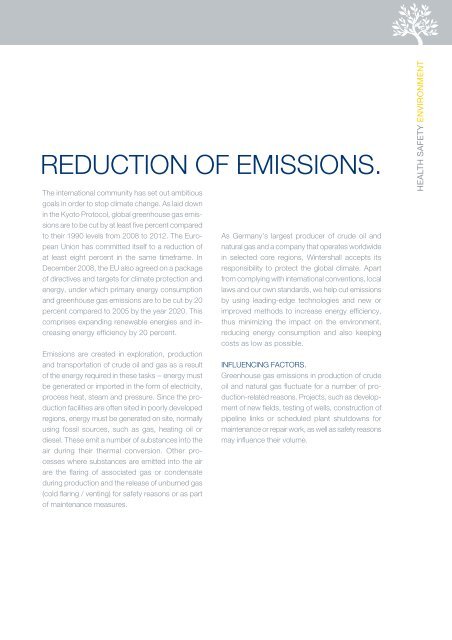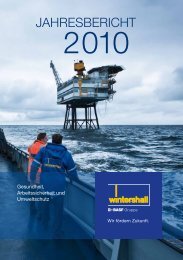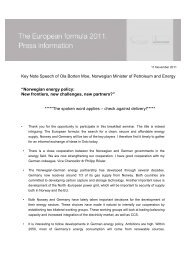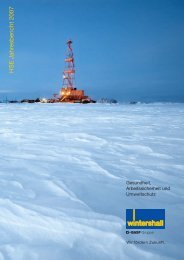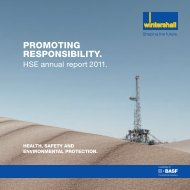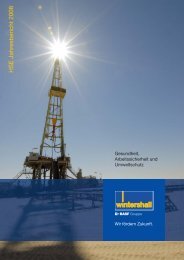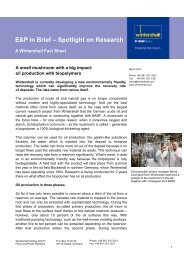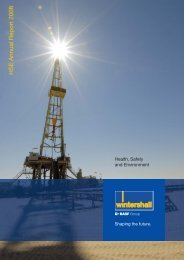HSE Annual Report 2010 (English) - WINTERSHALL
HSE Annual Report 2010 (English) - WINTERSHALL
HSE Annual Report 2010 (English) - WINTERSHALL
You also want an ePaper? Increase the reach of your titles
YUMPU automatically turns print PDFs into web optimized ePapers that Google loves.
REDUCTION OF EMISSIONS.<br />
The international community has set out ambitious<br />
goals in order to stop climate change. As laid down<br />
in the Kyoto Protocol, global greenhouse gas emissions<br />
are to be cut by at least five percent compared<br />
to their 1990 levels from 2008 to 2012. The European<br />
Union has committed itself to a reduction of<br />
at least eight percent in the same timeframe. In<br />
December 2008, the EU also agreed on a package<br />
of directives and targets for climate protection and<br />
energy, under which primary energy consumption<br />
and greenhouse gas emissions are to be cut by 20<br />
percent compared to 2005 by the year 2020. This<br />
comprises expanding renewable energies and increasing<br />
energy efficiency by 20 percent.<br />
Emissions are created in exploration, production<br />
and transportation of crude oil and gas as a result<br />
of the energy required in these tasks – energy must<br />
be generated or imported in the form of electricity,<br />
process heat, steam and pressure. Since the production<br />
facilities are often sited in poorly developed<br />
regions, energy must be generated on site, normally<br />
using fossil sources, such as gas, heating oil or<br />
diesel. These emit a number of substances into the<br />
air during their thermal conversion. Other processes<br />
where substances are emitted into the air<br />
are the flaring of associated gas or condensate<br />
during production and the release of unburned gas<br />
(cold flaring / venting) for safety reasons or as part<br />
of maintenance measures.<br />
As Germany’s largest producer of crude oil and<br />
natural gas and a company that operates worldwide<br />
in selected core regions, Wintershall accepts its<br />
responsibility to protect the global climate. Apart<br />
from complying with international conventions, local<br />
laws and our own standards, we help cut emissions<br />
by using leading-edge technologies and new or<br />
improved methods to increase energy efficiency,<br />
thus minimizing the impact on the environment,<br />
reducing energy consumption and also keeping<br />
costs as low as possible.<br />
INFLUENCING FACTORS.<br />
Greenhouse gas emissions in production of crude<br />
oil and natural gas fluctuate for a number of production-related<br />
reasons. Projects, such as development<br />
of new fields, testing of wells, construction of<br />
pipeline links or scheduled plant shutdowns for<br />
maintenance or repair work, as well as safety reasons<br />
may influence their volume.<br />
HEALTH SAFETY ENVIRONMENT


